INDIAN INDUSTRY WITH ACADEMIA FOR SCIENCE & INNOVATION
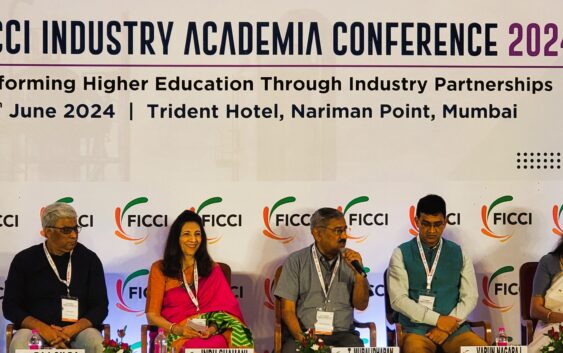
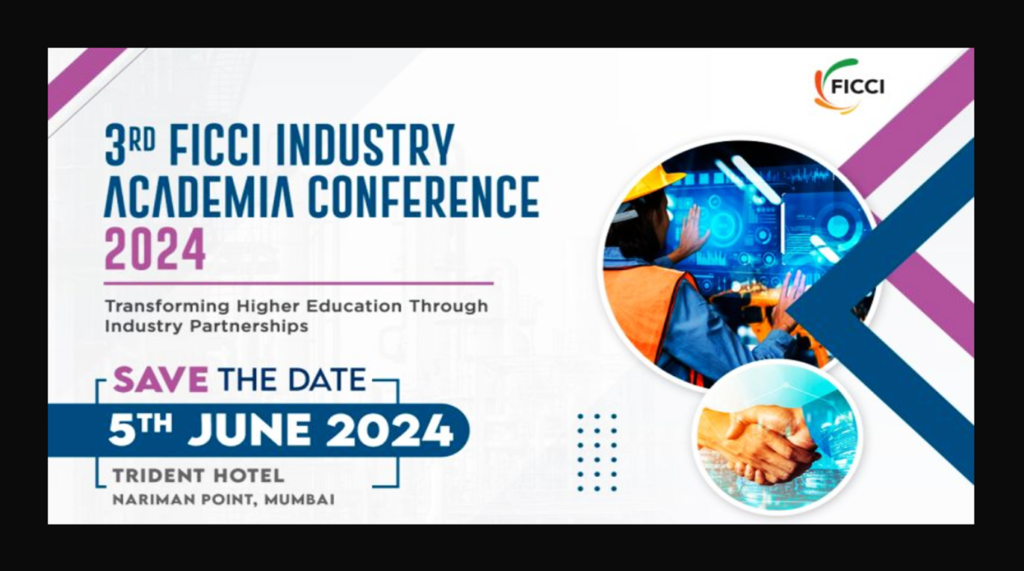
The 3rd edition of the FICCI Industry Academia Conference 2024 was held on June 5, 2024 at Trident Hotel, Nariman Point, Mumbai, drew over 250 professionals from business, academia, and government/policymaking to discuss the dynamic interplay between industry and academia, as well as its significant influence on the nation’s higher education environment. The conference sought to address the crucial need for more collaboration between business and academics, as well as to educate graduates for an ever-changing workplace. Even notable executives from diverse sectors, including CEOs, CXOs, Vice Chancellors, Deans, and respected Faculty members attended the conference to enhance the discussion.
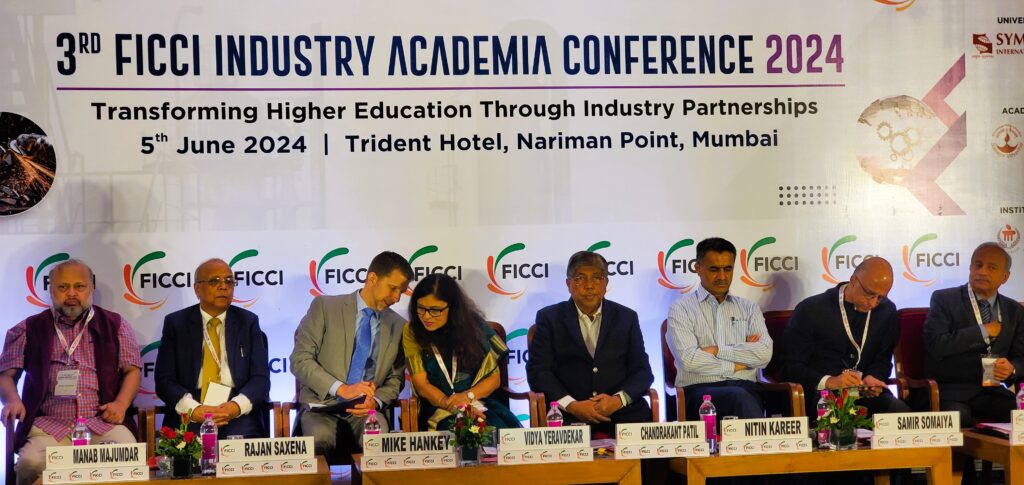
Academic institutions can benefit from Industry-Academia relationships by accessing current industry trends, technology, and exemplary procedures, while industry collaborators can get access to pioneering research and a pool of competent graduates. This relationship might lead to joint research projects, internships, and student employment opportunities, boosting their creativity, ingenuity, capacity to tackle difficult issues, cognitive capacities, resilience, and interpersonal skills. These collaborations also help to bridge the gap between academia and industry, making it easier to translate research and innovation into marketable products and services.
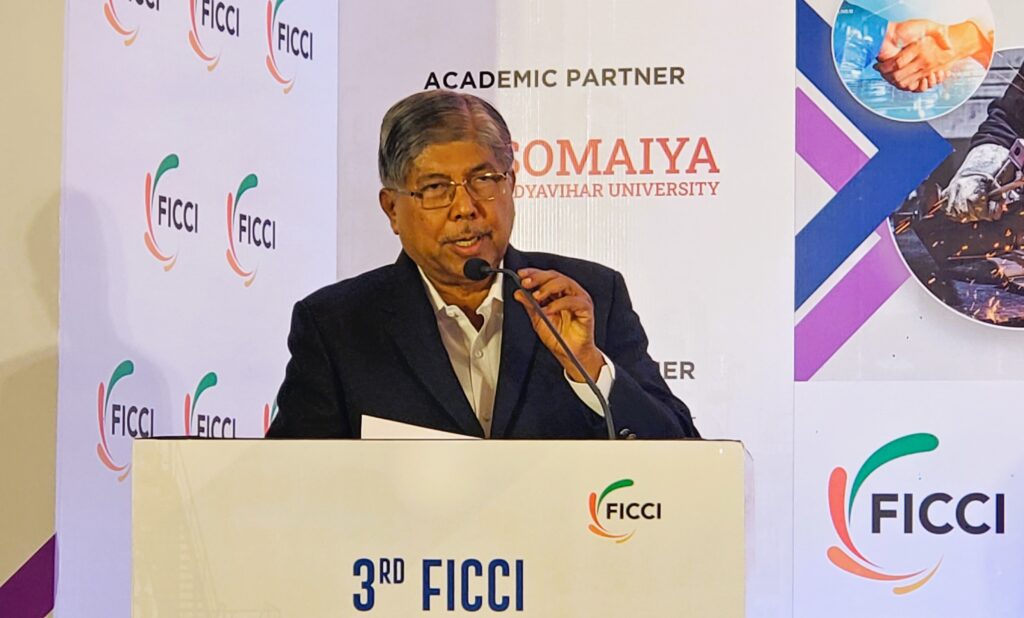
Mr Chandrakant Patil, Minister of Higher and Technical Education, Government of Maharashtra, stated that as we face future challenges and possibilities, we must build a strong and mutually beneficial partnership between industry and academics. He emphasised the significance of modifying curriculums to make them more industry-relevant. Mr Patil advocated adding micro-credentials to guarantee graduates have the skills most relevant to current business demands while also strengthening the relationship between educational institutions and the workforce.
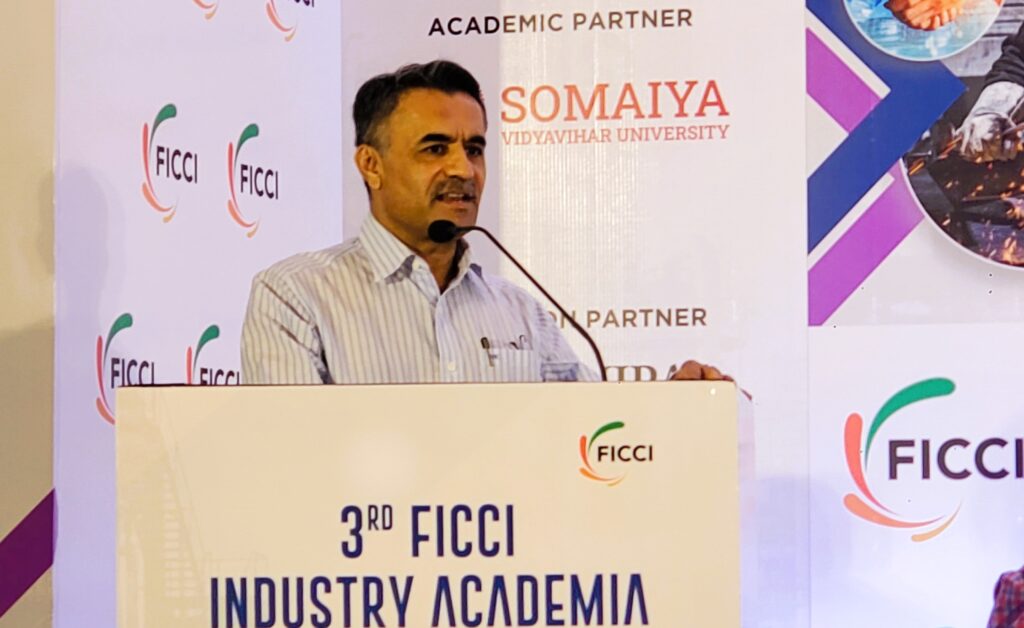
Dr. Nitin Kareer, Chief Secretary of the Maharashtra Government, has argued for a dramatic transformation in teacher training. He emphasised the need of faculty members having the necessary skills to bridge the gap between theoretical knowledge and practical implementation. According to Dr Kareer, this needs a shift away from traditional teaching approaches and towards developing students’ critical thinking and global citizenship abilities. These abilities would enable children to become responsible agents of change in a constantly changing environment.
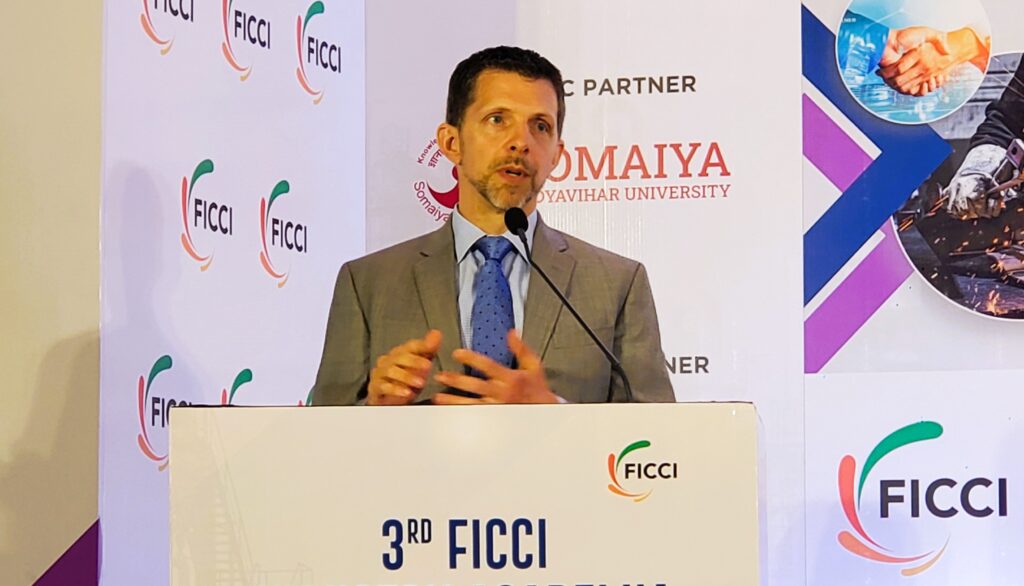
Mr. Mike Hankey, the United States Consul General in Mumbai, recommended a collaborative method in which colleges provide students with industry-specific skills in addition to theoretical knowledge. This, along with robust intellectual property protection, may establish India as a leader in creating new solutions to global concerns such as clean energy and resilient supply chains.
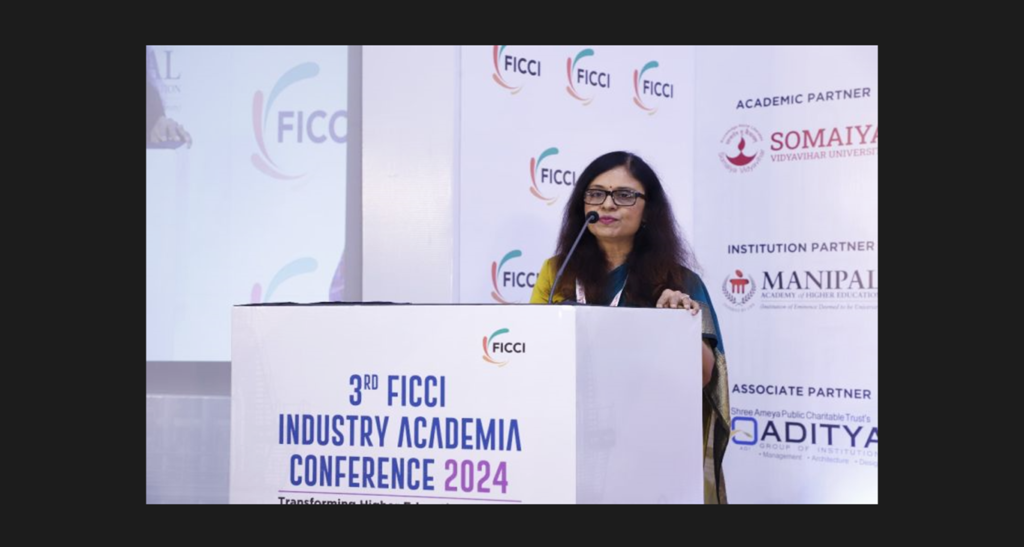
Dr. Vidya Yeravdekar, Chair of the FICCI Higher Education Committee and Pro-Chancellor of Symbiosis International University, advocated for faculty induction programmes that include live industry examples in classrooms, board-level industry representation, and effective internship and apprenticeship opportunities. “These efforts would ensure graduates from all institutions are well-equipped for success in the workforce,” says Dr. Yeravdekar.
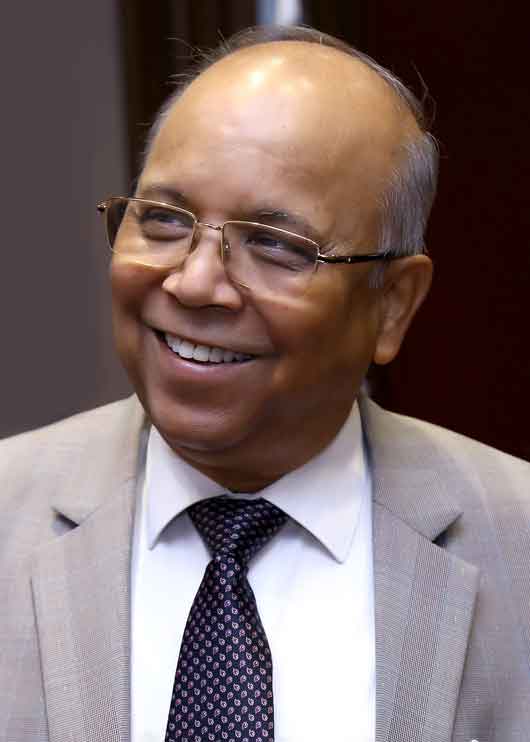
Dr. Rajan Saxena, Advisor to the FICCI Higher Education Committee and Former Vice-Chancellor of NMIMS, emphasised the crucial necessity for industry-academia partnership, as envisioned in the National Education Policy. He emphasised FICCI’s role in encouraging discussions to better understand business demands and steer curriculum design, research efforts, and interdisciplinary problem solving for India’s economic future.
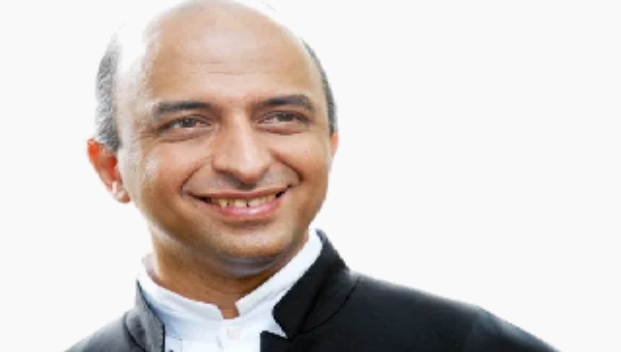
Mr Samir Somaiya, Co-Chair of FICCI Higher Education Committee and President of Somaiya Vidyavihar University, stated that FICCI will collaborate with the Maharashtra State Government to promote a strong industry-academia ecosystem.
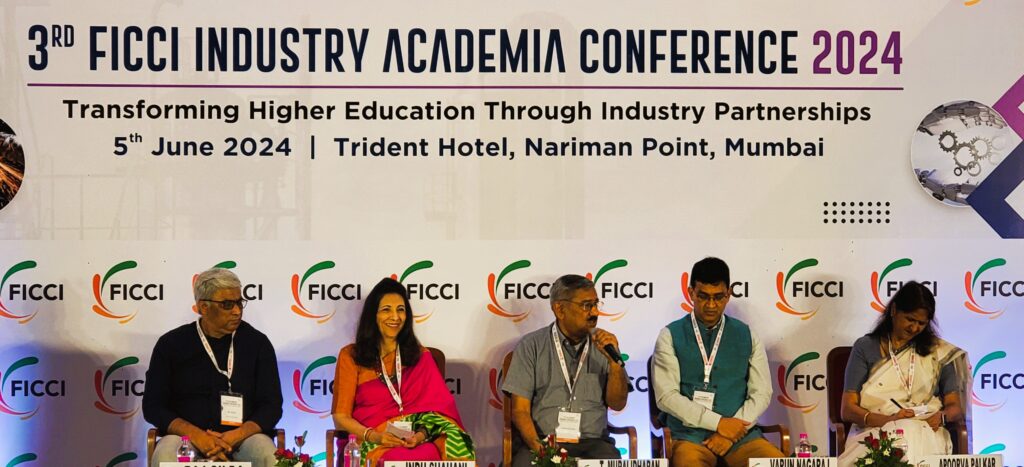
The 1st Panel Discussion at the 3rd FICCI Industry Academia Conference 2024 on the theme “Bridging The Industry-Academia Divide Through Internships & Apprenticeships”, Emphasised the value of hands-on experience and industry partnership in preparing students for the future workforce.
This panel discussed the importance of industry participation in supporting student transition into the workforce, as well as the benefits of industry partnership in giving students with hands-on and real-world experience through internships and apprenticeships.
The panelists were,
1. Dr. Varun Nagaraj, Dean, SPJIMR
2. Dr. Indu Shahani, President, ATLAS SkillTech University
3. Prof. (Dr.) Apoorva Palkar, Vice Chancellor, Maharashtra State Skills University
4. Mr. Pawan Yadav, Head of HR (DGM HR & Admin), Subros Limited
5. Mr. Raj Gilda, Co-Founder, Lend A Hand India and was
moderated by Mr. T Muralidharan, Founder & Chairman, TMI Group.
Working on actual projects under the supervision of industry specialists provides interns/students with hands-on experience that cannot be replicated in a classroom context. This hands-on learning not only reinforces academic knowledge, but it also improves critical skills like problem solving, communication, and cooperation.
Furthermore, it exposes interns/students to the dynamics of many sectors, providing insights into industry trends, practices, and technology. This exposure not only enables students to make educated career selections, but it also allows them to develop a network of industry connections, which may be extremely useful for future chances.
Mr T Murlidharan, Founder and Chairman of TMI Network, emphasised the importance of industrial internships for both students and professors. Faculty internships, he argued, can assist bridge the gap between theoretical education and real industrial requirements.
Mr. Raj Gilda, co-founder of Lend A Hand India, emphasised the value of student initiative. He recommended that students actively seek opportunities to practise their abilities outside of the classroom. This might include internships, apprenticeships, or even freelancing work.
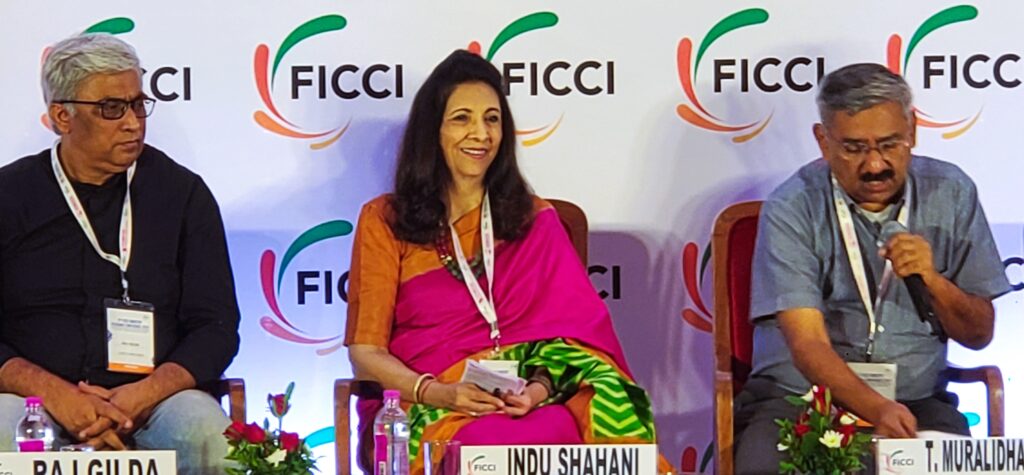
Collaborations with industry experts help to strengthen our students’ educational experiences. Collaboration with industry partners ensures that academic programmes stay relevant and connected with the changing demands of the business. This collaboration is critical in training students to effectively address real-world difficulties once they begin their professions.
Furthermore, industrial collaborations provide students with access to resources, facilities, and knowledge that are not often available in academic settings. Working on industry-sponsored projects and research initiatives allows students to apply their knowledge to real-world challenges while being mentored by experienced experts.
Industry relationships improve students’ employability and professional progression possibilities. Employers are increasingly looking for applicants who have hands-on experience and are familiar with industry procedures. Students who participate in collaborative efforts improve their resumes, gain a competitive advantage in the job market, and raise their chances of landing meaningful work opportunities after graduation.
Prof. Dr. Apoorva Palkar, Vice Chancellor of Maharashtra State Skills University, said that exposing students to real-world industrial practices through internships and projects is critical for equipping them with the skills they need to thrive in the workplace.
Dr. Varun Nagraj, Dean of SPJIMR SP Jain Institute of Management & Research, discussed the need for a curriculum that prepares students for a wide range of jobs that are becoming increasingly skill-dependent and require well-rounded individuals with both technical and soft skills.
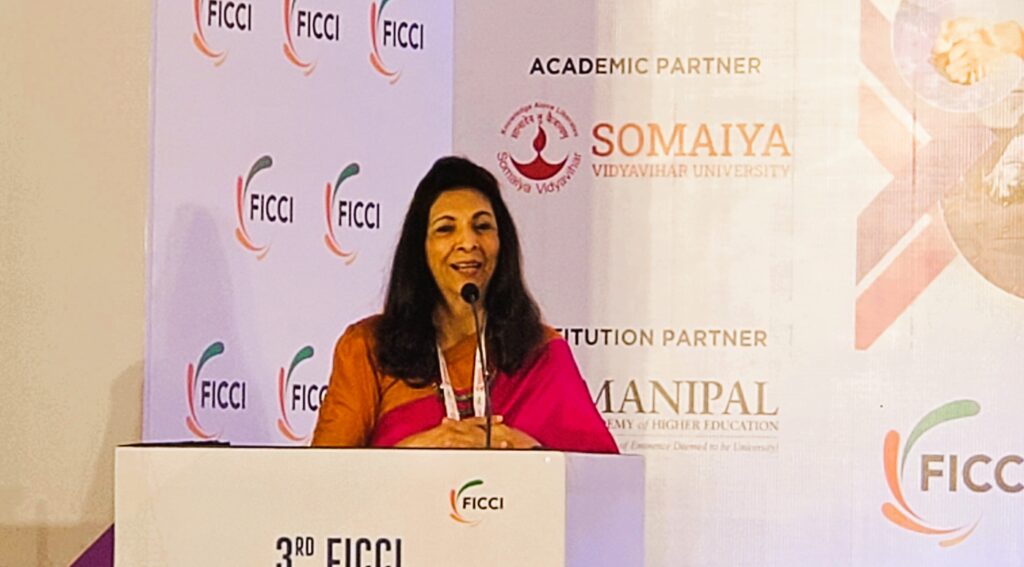
Dr. Indu Shahani, President of ATLAS SkillTech University, emphasised the significance of entrepreneurship, claiming that the future belongs to people who are prepared to face obstacles and offer answers.
Dr. Indu emphasized about skill-tech, a progressive idea that combines a body of knowledge, skills, and technology to focus on skills-led education. These are new-age skills education.
Dr. Shahani also discussed the evolution of universities, including the introduction of a new type of institution known as university 4.0. These institutions will prioritise building future skills, supporting sustainability, and being closely engaged to the industry and communities surrounding them. She also emphasised the fundamental elements of tomorrow’s universities, such as data analytics, sustainable business practices, entrepreneurship, globalisation, and technology. These characteristics are congruent with the guidelines of the National Education Policy (NEP), which emphasises the use of technology, interdisciplinary learning, experiential learning, collaborative learning spaces, diversity, equity, and inclusion.
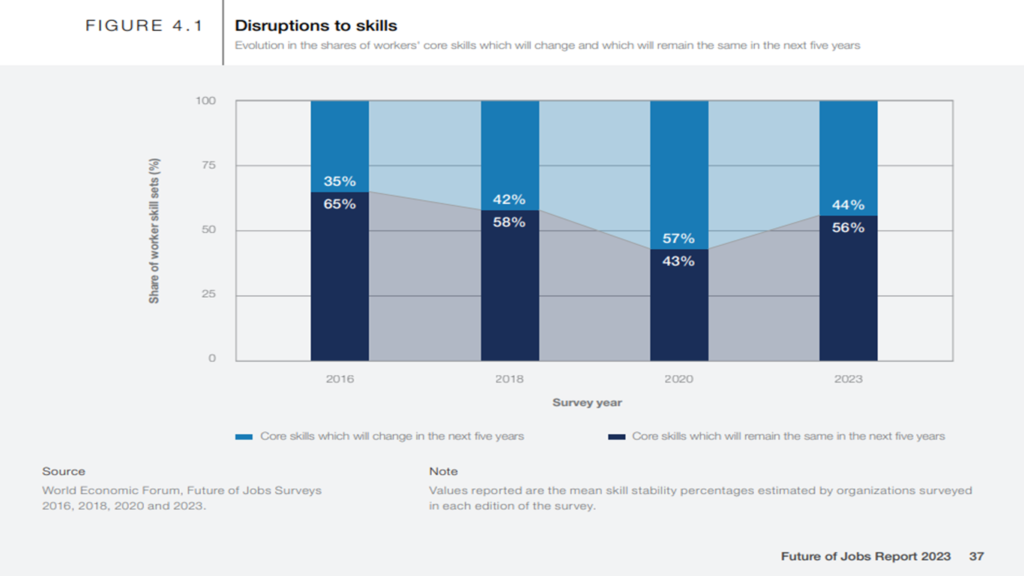
The Fourth Industrial Age is more than simply technology. It provides a chance to assist people of different financial levels, social classes, and nationalities. The goal of this revolution is to employ new technology to build a more inclusive and human-centered future. To do this, we must focus not only on technology, but also on increasing people’s abilities to positively affect their families, organisations, and communities. This necessitates soft skills such as problem solving, communication, critical thinking, creativity, and empathy, in addition to role-specific technical abilities.
According to the World Economic Forum’s Future of Jobs 2023 Report, 94% of employers look for well-rounded candidates that have both technical and soft skills. Employers predict that 44% of workers’ abilities will be disrupted within the next five years. Cognitive talents are becoming increasingly important in the workplace, particularly for complicated problem-solving.
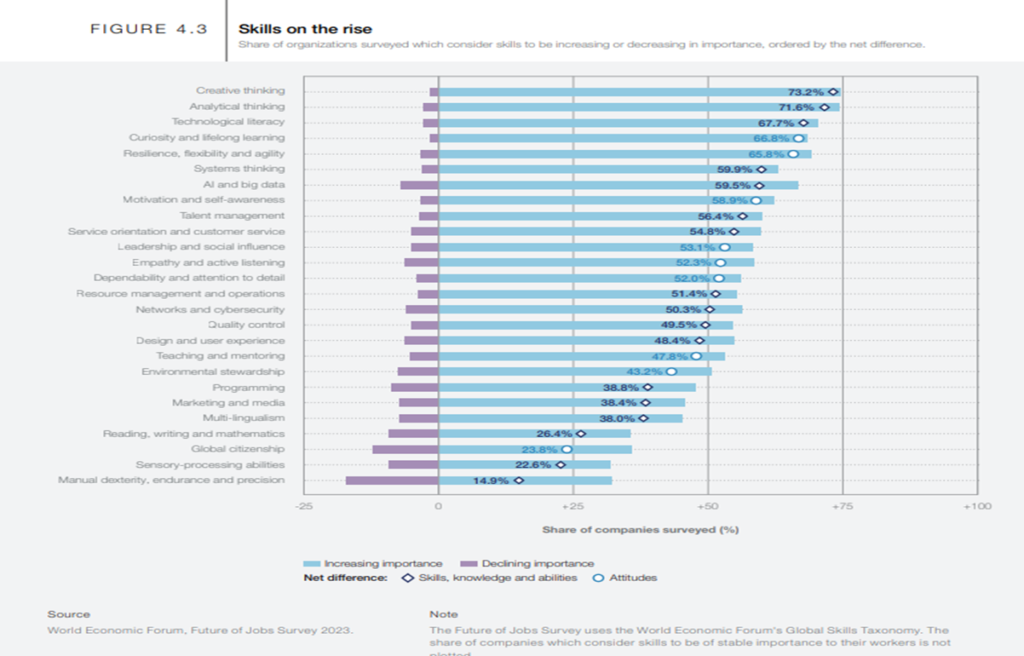
Soft skills are psychosocial skills, which are non-technical abilities that relate to how you operate. Soft skills are transferable to any workplace and may help you excel in your job and collaborate effectively with others.
In its Future of Jobs 2023 study, the World Economic Forum identified many soft talents as ‘high demand’. As a result, these qualities – resilience, agility, flexibility, time management, and so on – may help you make more money.
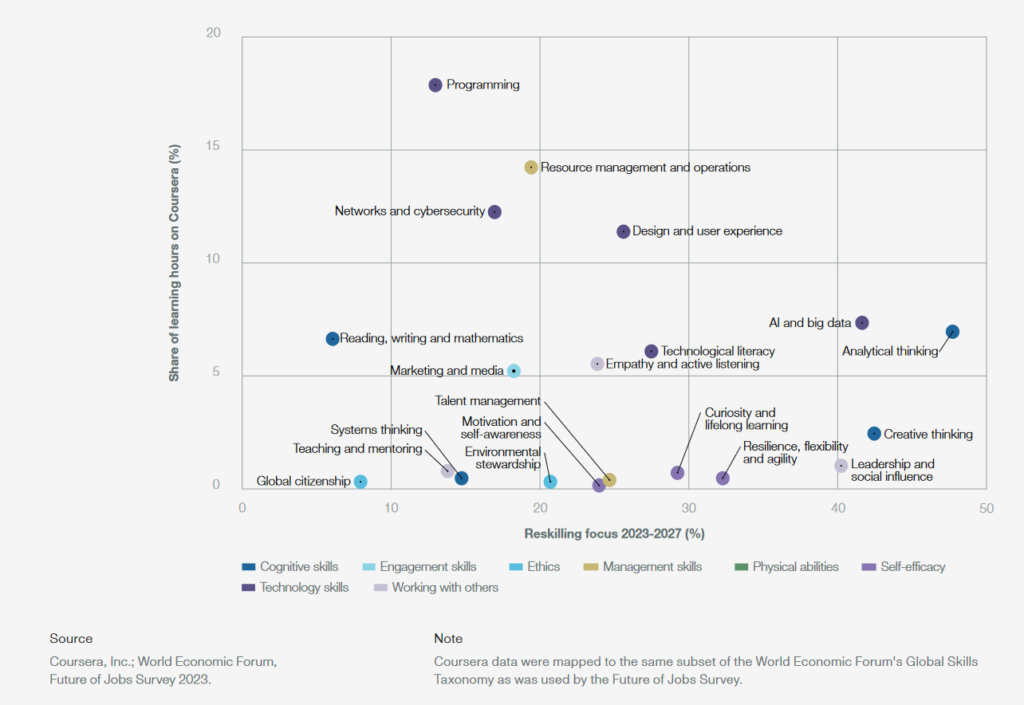
Soft skills are becoming vital as a result of digital transformation and cooperation. However, they cannot fully replace technical abilities. Striking a balance between acquiring both sorts of abilities will allow you to flourish in the profession and adapt to new technology and other requirements.
Soft skills, like hard technical abilities, may be learned to improve your capacity to solve issues, collaborate successfully with others, and maintain a positive work ethic.
Participating in extracurricular activities that foster cooperation, communication, and leadership abilities (like as volunteering) is an excellent method to build soft skills.
Soft skills promote career longevity, sustainability, and professional development. Building great connections, resolving problems, and identifying win-win scenarios can help students keep their jobs. A positive mentality allows pupils to improve continuously and gain field-specific information, which increases their chances of retention. Planning, organising, and self-assessment skills enable students to continuously analyse gaps, devise solutions, and efficiently manage activities.
Soft skills enable pupils to approach difficulties in novel and innovative ways. If students encounter problems at work and have to wait for instructions, their productivity may suffer. Employee responsibility and problem-solving abilities boost overall corporate productivity.
A successful entrepreneur combines a problem-solving mindset with resilience, vision, and adaptability. They identify market needs, develop innovative solutions, and persist through challenges. By leveraging their financial acumen, networking skills, and ability to learn continuously, they navigate obstacles and refine their approach. Effective time management, calculated risk-taking, and a strong customer focus enable them to transform their ideas into viable businesses. As they gain experience and overcome hurdles, entrepreneurs hone their leadership abilities, inspiring others and driving their ventures toward success. This process of constant growth, adaptation, and perseverance ultimately leads to the creation of value for customers and the achievement of personal and financial goals.
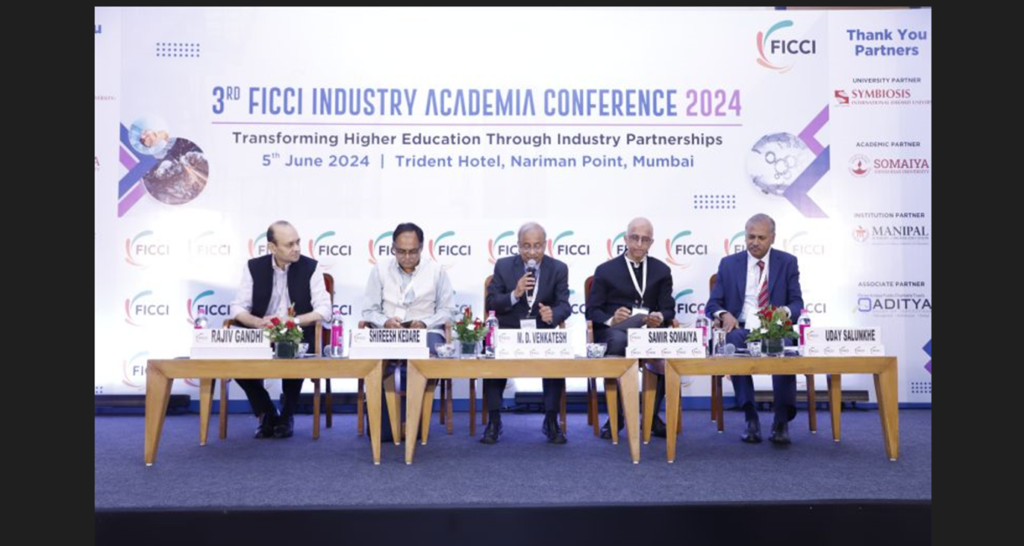
2nd Panel Discussion at the 3rd #FICCI Industry-Academia Conference on the theme “Professor of Practice (PoP): Bridging the Gap Between Theory & Practice”, with panelists:
1. Mr. Samir Somaiya, Co-Chair, FICCI Higher Education Committee &
President, Somaiya Vidyavihar University
2. Prof. Shireesh Kedare, Director, IIT Bombay
3. Dr. Ramesh Bhat, Vice Chancellor, NMIMS University
4. Prof. (Dr.) Uday Salunkhe, Group Director, Welingkar Institute of
Management
5. Mr. Rajiv Gandhi, Founder, Hester Biosciences Limited
and was moderated by Lt. Gen. (Dr.) M. D. Venkatesh, Co-Chair, FICCI Higher Education Committee & Vice Chancellor, Manipal Academy of Higher Education, addressed the rising importance of Professors of Practice (PoPs) and their role in integrating the industrial ecosystem into classrooms.
The panellists discussed the rising importance of Professors of Practice (PoPs) in bridging the gap between academia and industry. PoPs provide essential real-world experience in the classroom, preparing students for the challenges of the workplace. They can also facilitate significant linkages between institutions and industrial partners.
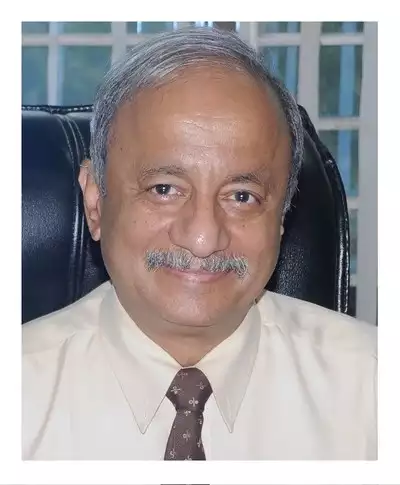
Lt. Gen. (Dr.) Venkatesh M D Iyengar, Co-Chair, FICCI Higher Education Committee & Vice Chancellor, Manipal Academy of Higher Education, addressed the rising importance of Professors of Practice (PoPs) and their role in integrating the industrial ecosystem into the classroom.
In May 2023, the University Grants Commission (UGC) launched the groundbreaking Professor-of-Practice (PoP) project with the goal of revolutionising India’s higher education scene. This imaginative initiative, which has acquired significant support in recent months, acts as an important link between academics and industry. By encouraging cooperation and allowing the interchange of ideas across these two sectors, the PoP project is altering educational paradigms and providing students with the tools they need to succeed in today’s competitive job market. The Professor-of-Practice serves as a bridge between academic and industrial experience.
This symbiotic link between industry experts and academics not only enhances students’ educational experiences, but also assures they are well-prepared to face real-world difficulties.
Perhaps the most noticeable characteristic of the PoP programme is its ability to cause a seismic shift in the relationship between academics and industry. By actively involving industry professionals in academic settings, the effort guarantees that students are exposed to the most recent trends, problems, and breakthroughs in their chosen industries. This dynamic engagement keeps educational content fresh and prepares graduates with the skills and insights that employers need in today’s fast-paced employment market.
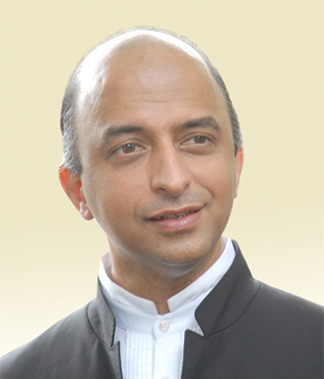
Mr. Samir Somaiya, Co-Chair, FICCI Higher Education Committee & President, Somaiya Vidyavihar University, emphasised PoPs’ essential contribution to both academia and industry. PoPs bridge the gap between theoretical education and practical experience, keeping industry aware of future demands and preparing students for employment.
This effort has a huge influence on higher education. It combines theory and practice to prepare students for the corporate world in a realistic manner. Professors of Practice can advise students about professional aspirations and academic relevance, avoiding rosy perspectives. This realism improves students’ grasp of their profession and industry requirements.
The Professor of Practice concept is crucial for higher education, particularly for students pursuing varied career choices. It bridges the gap between theory and practice, preparing students to handle real-world difficulties. It’s a game changer.
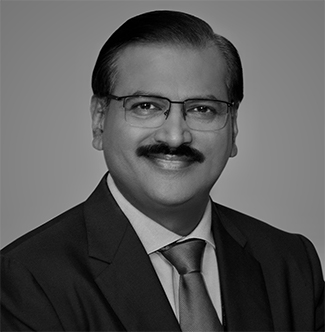
Prof. (Dr.) Uday Salunkhe, Group Director, Welingkar Institute of Management, emphasised that PoPs were evaluated in terms of their relevance to present academics. He explained how PoPs promote peer-to-peer learning, allowing instructors to benefit from industry knowledge.
Peer learning includes persons with comparable levels of skill or knowledge gathering exchanging thoughts and learning from one another, resulting in an atmosphere in which learners actively share ideas, experiences, and expertise. This participatory discussion promotes a greater grasp and retention of knowledge.
Collaboration is essential for peer learning, since it fosters collaboration and communication skills that are required for success in a variety of professions. By working together to achieve common goals, students build the critical teamwork required to navigate real-world issues. Peer learning provides a dynamic approach to education and personal development by using collective knowledge and experience.
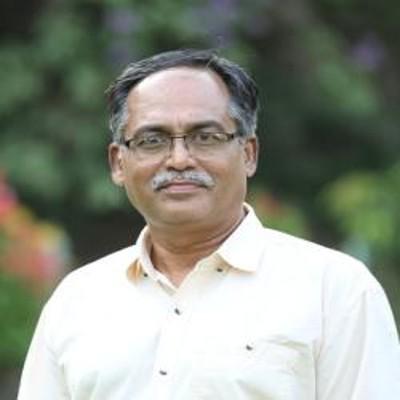
Prof. Shireesh Kedare, Director, Indian Institute of Technology, Bombay, emphasized that PoPs bring industrial discipline into the classroom. He emphasised that PoPs serve an important role in exposing students to the reality of the working environment. This provides students with the necessary skills and mentality for a successful transition from academic to professional life.
Peer-to-peer learning is a reciprocal learning and training technique. It entails people from the same level engaged in collaborative education. Peer learning is also valuable at work. It fosters an engaged workforce that is continually improving its skills. Employee experiences and expertise are among an organization’s most valuable assets. And this should be utilised, as well as the amount of expertise that their peers may obtain if this knowledge was shared. Future trends in peer learning (below).
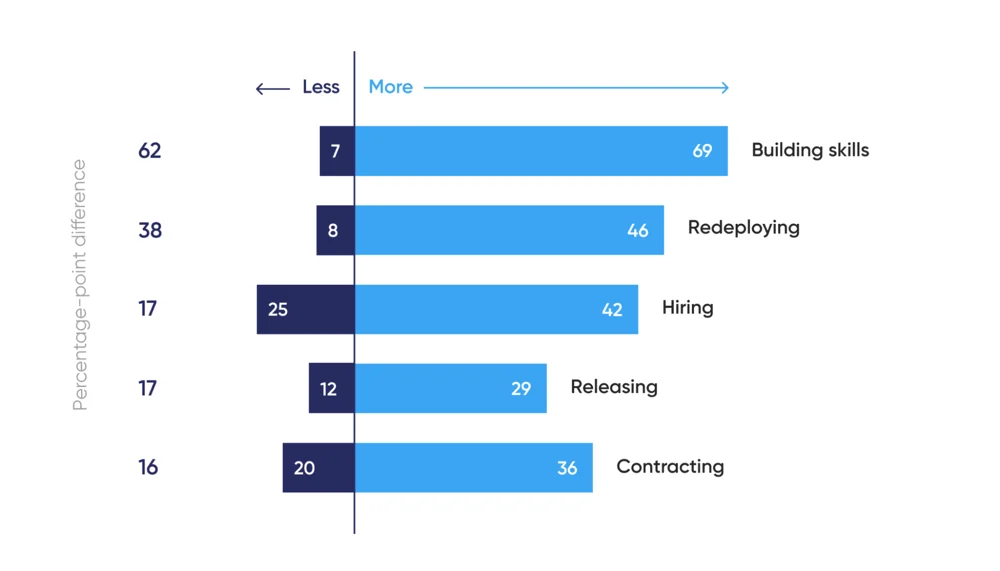
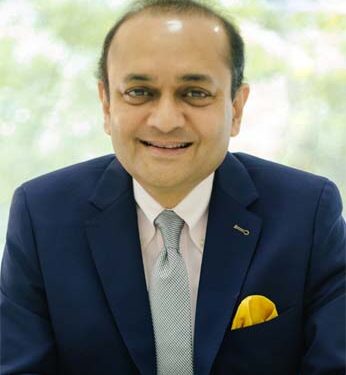
Mr. Rajiv Gandhi, Founder of Hester Biosciences Limited, emphasised the benefits PoPs provide to higher education institutions. He discussed how PoPs promote a process- and people-oriented approach, support translational research, and serve as industry ambassadors. This improves the relationship between academics and the professional world.
Professors play an important role in the academic environment. Their responsibilities extend well beyond the simple transfer of information to cover a wide range of tasks that contribute to the growth of education and research. Professors play a very vital role in higher education. They are not only knowledge carriers and mediators, but also pivotal players in the advancement of science and research, as well as the training of the next generation of professionals.
Professors make significant contributions to scientific development through their research activity. They create new theories, enhance current technology, and contribute to the worldwide flow of information via papers and conference presentations. Their research discoveries not only have an academic impact, but they are also frequently used in business, healthcare, and other socially significant fields. Professors of Practice go beyond the classroom to lead seminars, workshops, training sessions, special lectures, and joint research initiatives.
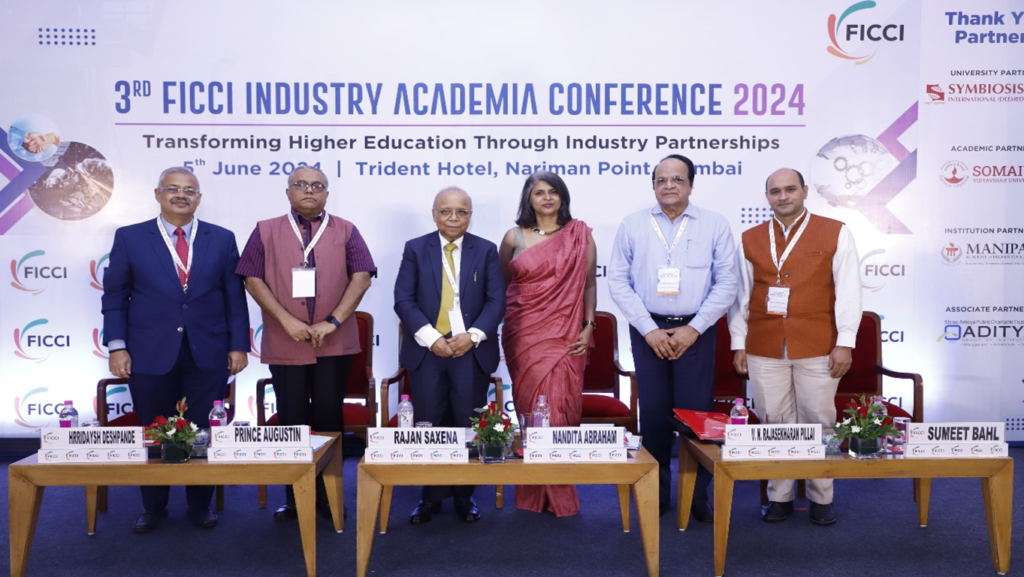
3rd Panel Discussion at 3rd #FICCI Industry-Academia Conference was on the theme of “Promoting Multidisciplinary Research for Institutional Excellence: Faculty Development, Governance, and Innovation” discussed the rising need of multidisciplinary and its increasing significance.
The panellists were:
- Prof. Hrridaysh Deshpande, Vice Chancellor, Ajeenkya D Y Patil University
- Prof. V. N. Rajasekharan Pillai, Vice Chancellor, Somaiya Vidyavihar University
- Dr. Nandita Abraham, CEO and Interim Dean, BITS Design School
- Mr. Prince Augustin, Former Executive Vice President – Group, Human Capital & Leadership Development, Mahindra Group
- Prof. Sumeet Bahl, Director Research Collaborations, Amrita Vishwa Vidyapeetham
And moderated by Dr. Rajan Saxena, Advisor FICCI Higher Education Committee & Former Vice-Chancellor, NMIMS. The third panel session focused on the transformational potential of multidisciplinary research (MDR) to create institutional greatness. Universities can handle challenging issues, produce new solutions, and drive innovation across the academic ecosystem by combining the knowledge of multiple fields. This seminar discussed critical factors of supporting MDR, including its influence on institutional governance and role in faculty development.
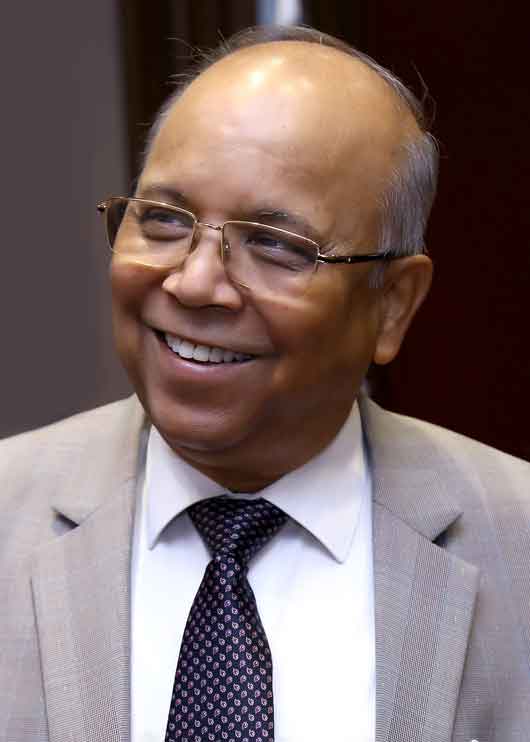
Prof. Dr Rajan Saxena, Advisor FICCI Higher Education Committee & Former Vice-Chancellor, NMIMS, emphasised the necessity of institutions working with industry on interdisciplinary and transdisciplinary initiatives to ensure that research meets real-world industry demands. He also emphasised the need of cultivating a multidisciplinary attitude among faculty to educate students for future occupations that require them to think across disciplines and be well-positioned to address unknown difficulties.
The NEP-2020 envisions a multidisciplinary education that aspires to develop humans’ social, physical, intellectual, emotional, and moral qualities in an integrated manner. A flexible curriculum will allow for innovative pairings of different subjects. Students will be able to pick between languages and subjects such as applied sciences, mathematics, and business studies. The goal is to help students develop critical thinking, versatility, adaptability, problem solving, flexibility, as well as analytical and communication abilities. A comprehensive and multidisciplinary strategy broadens and improves research prospects.
Integrating several disciplines provides students with a more thorough and holistic grasp of the subject. A multidisciplinary approach to education better prepares students to understand, assess, and confront the complexity of their surroundings, training them to be well-rounded people and productive members of society.
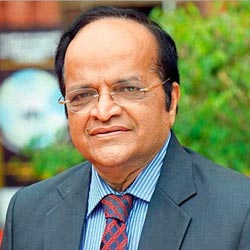
Prof. Rajasekharan Pillai V N Pillai, Vice Chancellor of Somaiya Vidyavihar University, highlighted the growing demand for cognitive and interpersonal skills in the modern workplace, emphasising the importance of institutions developing adaptable and agile graduates who can thrive in collaborative environments and remain relevant in an ever-changing workplace.
Employees can use cognitive thinking to rationally examine a situation and make decisions. Employees that lack excellent logic and reasoning abilities will struggle to solve issues, verify claims, and handle ambiguity in the workplace.
In the job, well-trained cognitive abilities are becoming more crucial. In a recent report, McKinsey highlighted cognitive skills as one of four ‘different elements of talent’ (DELTAs) that would be critical in the future of work. Workers that are forward-thinking should acknowledge this and focus on improving their cognitive skills.
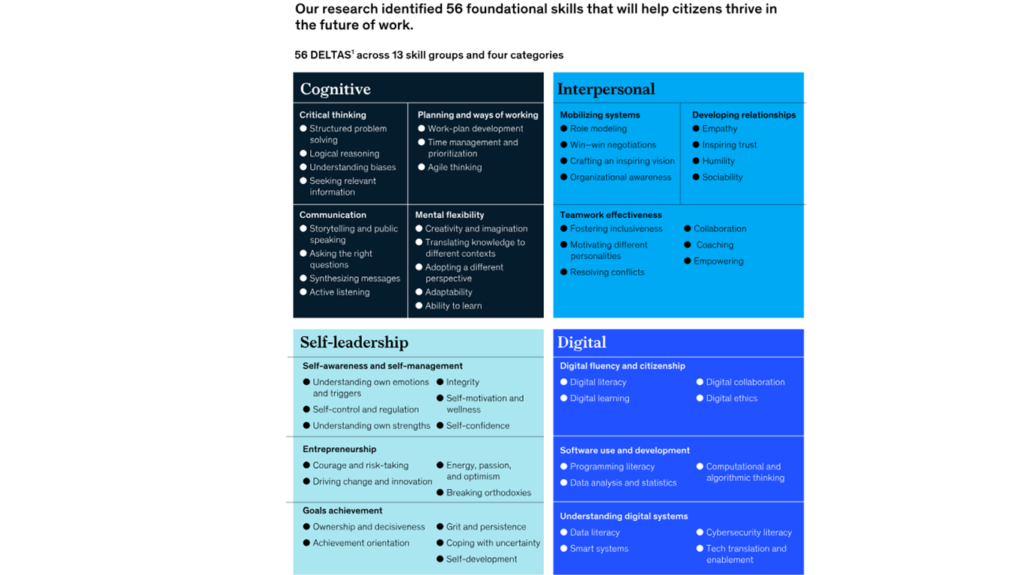
McKinsey’s experience in adult training helped to clarify what these core abilities may be, as seen in the chart above. Mckinsey began with four broad skill categories—cognitive, digital, interpersonal, and self-leadership—and then identified 13 different skill groups inside those categories. Communication and mental flexibility, for example, are two skill sets that fall under the cognitive category, whereas collaboration effectiveness is classified as interpersonal.
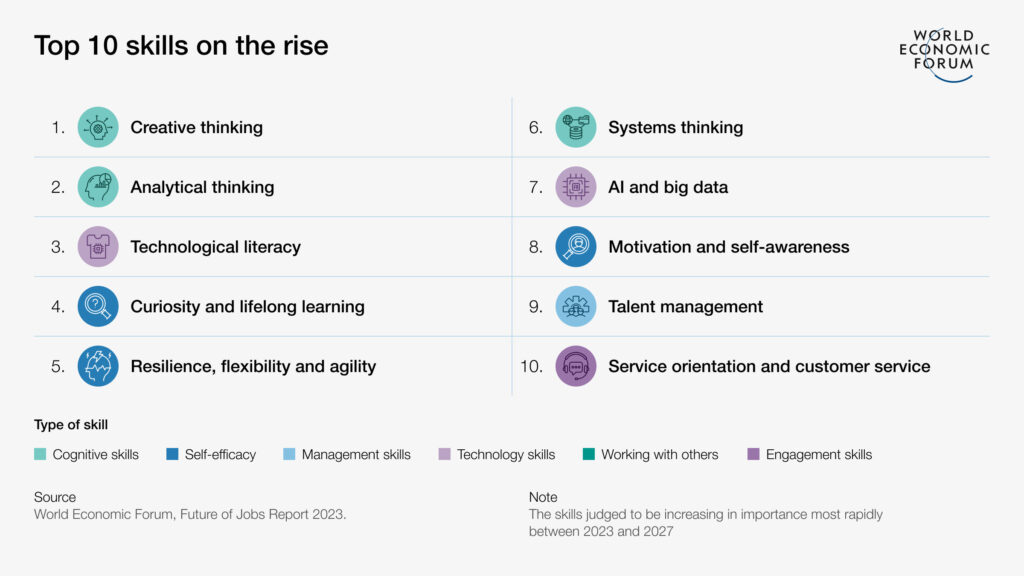
Cognitive capabilities are seen as the most important for workers in 2023.
Analytical thinking is deemed a fundamental talent by more firms than any other skill, accounting for 9.1% of all core skills surveyed.
Creative thinking is ranked second, ahead of three self-efficacy qualities – resilience, flexibility, and agility; motivation and self-awareness; and curiosity and lifelong learning – which acknowledge the importance of workers’ ability to adapt to disrupted environments.
“There’s more of a focus and an interest in having people with analytical thinking, people with creativity,” Saadia Zahidi, Managing Director of the World Economic Forum on the Future of Jobs Report 2023.
“But it’s also become very important to have leadership skills and to have social influence, and the ability to work with other people. The traits that make us human, make us able to relate with each other and to get innovative, creative things done in the workplace.”
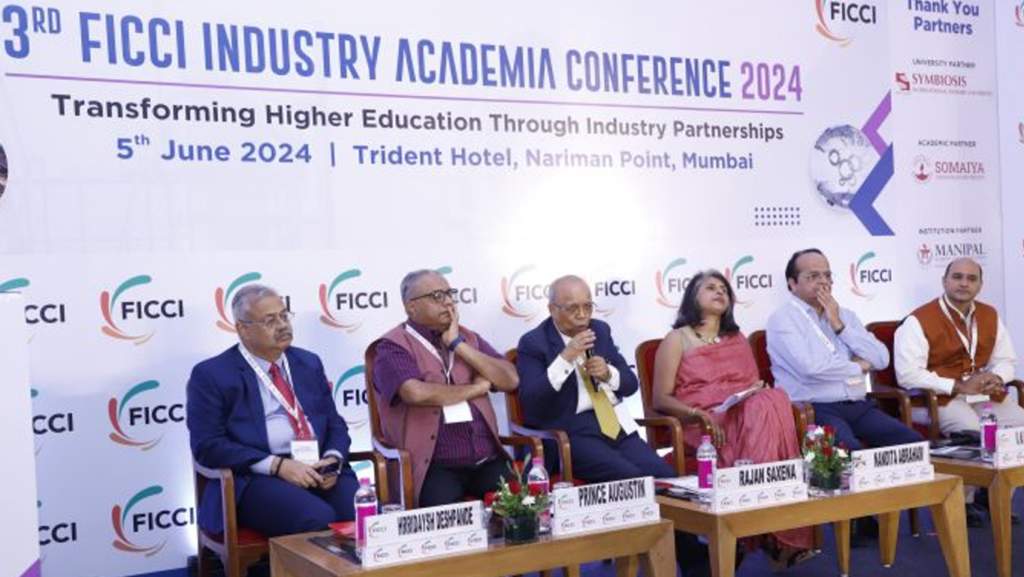
Dr. Prince Augustin, Former Executive Vice President, Mahindra Group, emphasized the need to identify and fund research in aspirational areas to address future challenges to ensure institutions are at the forefront of innovation and can address issues before they become critical.
Dr. Nandita Abraham, CEO and Interim Dean, BITS Design School Mumbai, highlighted the importance of multidisciplinary research in tackling complex problems by bringing together diverse perspectives and researchers from various streams to develop more comprehensive solutions as single-stream approaches are no longer sufficient. Prof.
Hrridaysh Deshpande, Vice Chancellor, Ajeenkya D Y Patil University, called for a shift away from traditional research methods and exploration of new approaches, using innovative methodologies, incorporating new technologies and fostering collaboration between researchers from vastly different disciplines.
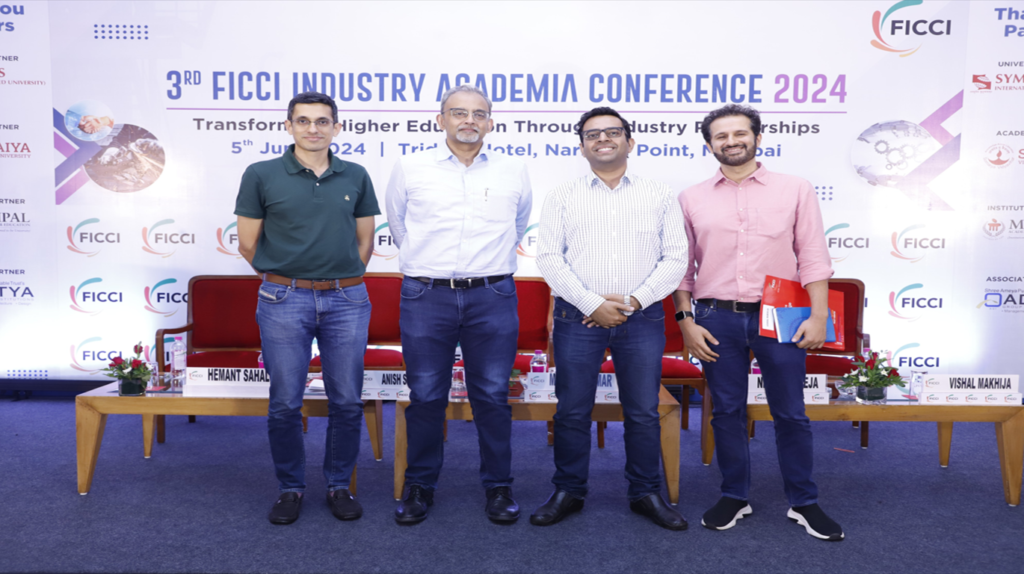
4th Panel at the 3rd #FICCI Industry-Academia Conference on the theme “Preparation for Tomorrow: Building Partnerships with EdTech”, discussed how educational institutions can leverage EdTech collaborations to achieve their educational goals.
The 4th panel session on the theme 𝐏𝐫𝐞𝐩𝐚𝐫𝐚𝐭𝐢𝐨𝐧 𝐟𝐨𝐫 𝐓𝐨𝐦𝐨𝐫𝐫𝐨𝐰: 𝐁𝐮𝐢𝐥𝐝𝐢𝐧𝐠 𝐏𝐚𝐫𝐭𝐧𝐞𝐫𝐬𝐡𝐢𝐩 𝐰𝐢𝐭𝐡 𝐄𝐝𝐓𝐞𝐜𝐡 addressed the transformative potential of educational technology (EdTech) in preparing graduates for the demands of the everevolving job market and discussed how educational institutions can leverage EdTech collaborations to achieve their educational goals. By harnessing the power of EdTech, universities and industry leaders can bridge the widening skills gap and equip graduates with the knowledge and competencies needed to thrive in the workforce of tomorrow.
The panellists were:
1. Mr. Nitin Kukreja, Co-Chair, FICCI New Education Providers SubCommittee and CEO, ALLEN Career Institute
2. Mr. Anish Srikrishna, CEO, TimesPro
3. Prof. Anil Kashyap, President and Chancellor, NICMAR University
4. Mr. Hemant Sahal, Founder & CEO, Digii
5. Mr. Vishal Makhija, India EdTech Lead, Amazon Web Services
and moderated by Mr. Mayank Kumar, Chair, FICCI New Education Providers SubCommittee and Co-Founder & Managing Director, upGrad.
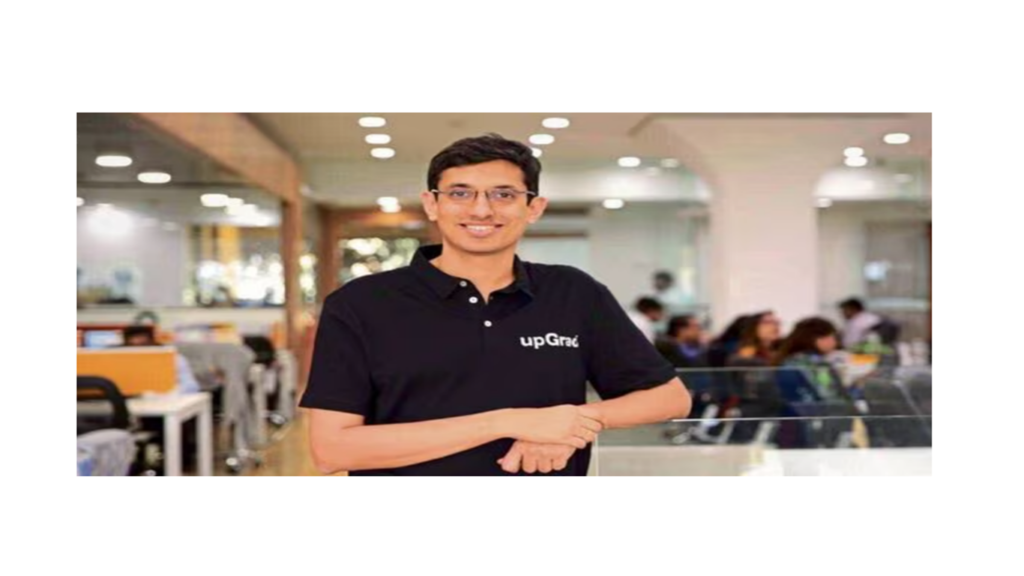
Mr. Mayank Kumar, Chair of the FICCI New Education Providers Sub-Committee and Co-Founder and Managing Director of upGrad, highlighted the problem of catering to varied learning styles in traditional education. He emphasised the usefulness of EdTech solutions in customising learning experiences and adapting to specific student requirements, as well as the need of viewing EdTech businesses as partners in the teaching learning ecosystem.
Edtech helps students attend classes, collaborate, engage with faraway students, and learn in innovative ways, both within and beyond the classroom. EdTech is commonly used synonymously with educational technology. Students may utilise interactive games to improve their arithmetic, spelling, phonetic, and reading abilities. Spelling Training, for example, allows students and teachers to input their own word lists to practise pronunciation and create interactive games.
Edtech improves learning by creating immersive and engaging experiences that adapt to a variety of learning styles and preferences. With online resources, students become active participants in their learning journey, allowing them to investigate subjects beyond their textbooks. EdTech is critical in delivering blended learning since an LMS is a prerequisite. Of course, selecting an edtech platform that is interoperable with many operating systems, browsers, and devices is critical, as is allowing for simple third-party connections for seamless learning experiences.
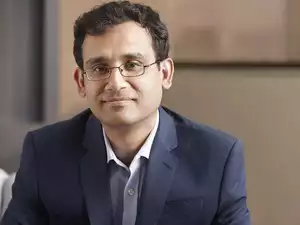
Mr. Nitin Kukreja, Co-Chair, FICCI New Education Providers Sub-Committee and CEO of ALLEN, emphasised the importance of technology in increasing student learning results. He emphasised that EdTech integration enables institutions to reach a larger audience and provide advantages beyond traditional classroom settings while saving time and resources, eventually lowering prices.
Mr. Hemant Sahal, Founder & CEO, Digii (formerly CollPoll), highlighted a crucial shift in student learning where students are now more aware of their individual learning preferences. He stated that in this evolving learning landscape educational institutions can leverage education technology to personalize learning journeys, catering to these diverse styles and goals.
Mr. Anish Srikrishna, CEO, TimesPro, proposed a strategic shift in how institutions view EdTech companies. He advocated for viewing them not just as service providers, but as complementary experts. By collaborating with EdTech companies in areas where technology can be leveraged, institutions can enhance student engagement and outreach. Furthermore, faculty can expand their reach and improve the institution’s brand through online education platforms.
Mr. Vishal Makhija, India EdTech Lead, Amazon Web Services (AWS), stressed the importance of technology in assessing learning outcomes and mentioned that with the reduction in cost of technology, institutions will have access to more resources to facilitate improved learning outcomes.

